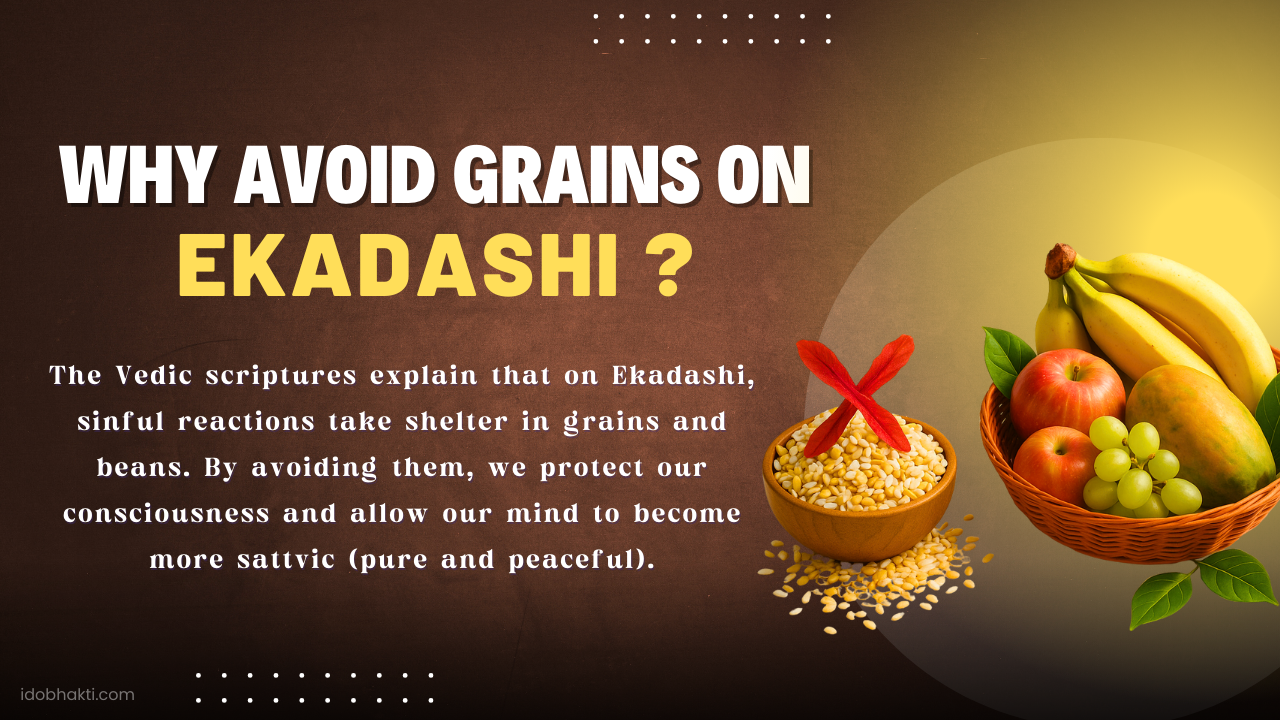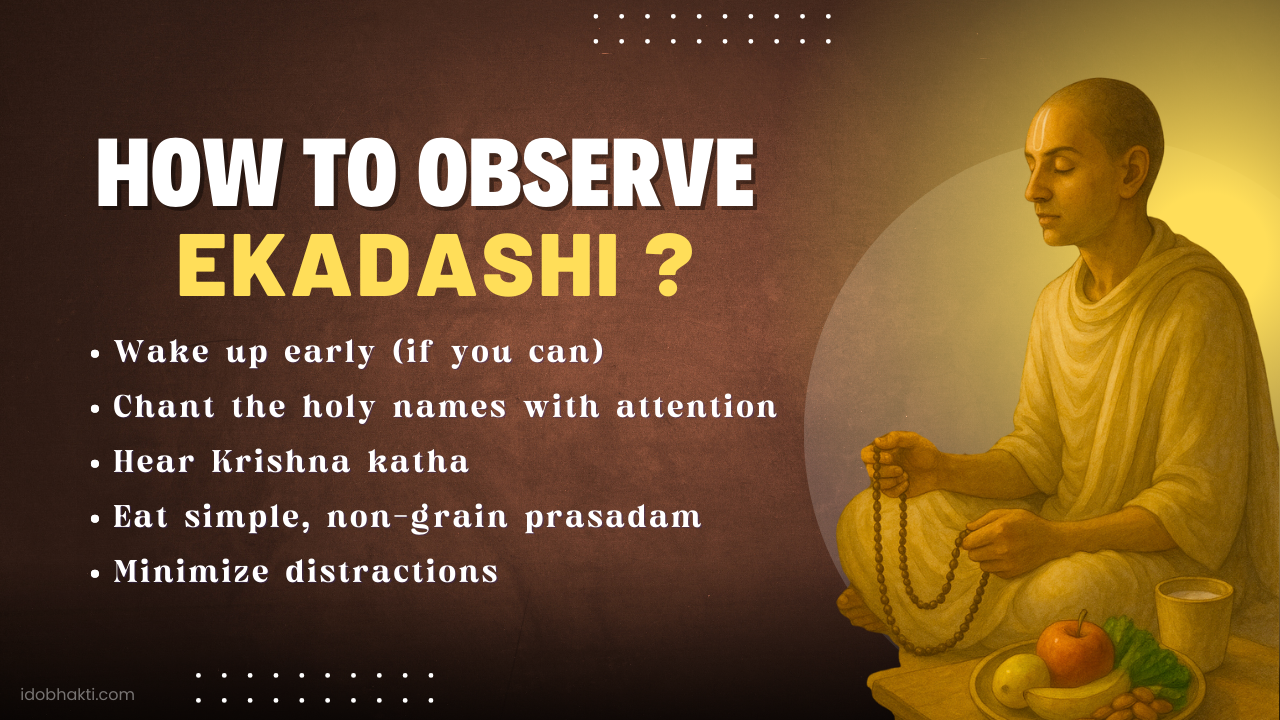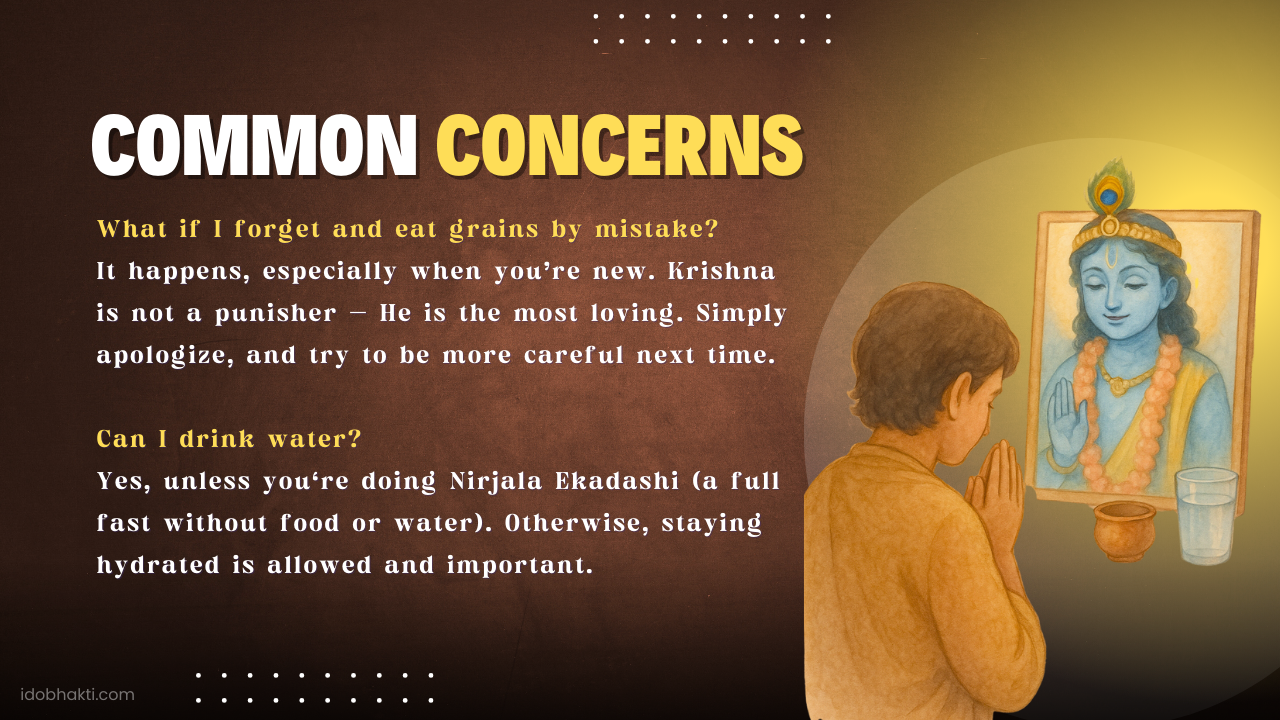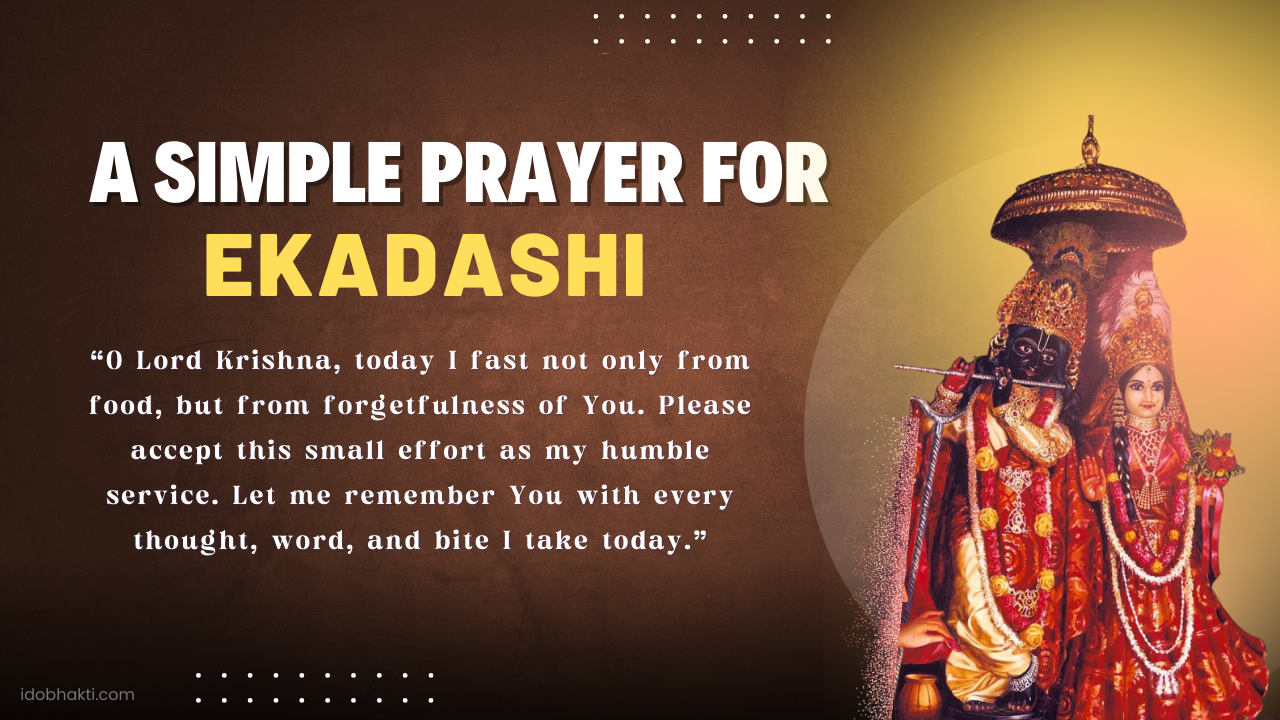


How to Celebrate Ekadashi: A Beginner’s Devotee Guide
Just as the Ganges purifies externally, Ekadashi purifies internally. Fasting from grains and beans helps reduce bodily heaviness, but the real fast is from distractions — so we can feast on remembrance.

“Why do devotees fast on Ekadashi?”
It’s a question I asked years ago when I was just beginning my journey in Krishna consciousness. At first, I thought Ekadashi fasting was merely about skipping meals. But as I went deeper, I realized:
Ekadashi isn’t about giving something up — it’s about turning inward, toward Krishna.
In this blog, I’ll share what is Ekadashi, how to observe it (even if you’re just starting out), the Ekadashi fasting rules ISKCON follows, and how it can profoundly shift your consciousness — not just on one day, but forever.
What Is Ekadashi?
Ekadashi falls on the 11th day of both the waxing and waning moon phases in the Vedic calendar. These two days every month are not ordinary — they are divinely charged opportunities for cleansing the heart and remembering Krishna more deeply.
“Among all kinds of killers, time I am; and among beasts I am the lion. Of purifiers I am the wind; of wielders of weapons I am Rama; among fishes I am the shark, and of flowing rivers I am the Ganges.”
— Bhagavad Gita 10.31
Just as the Ganges purifies externally, Ekadashi fasting purifies internally. Fasting from grains and beans helps reduce bodily heaviness, but the real fast is from distractions — so we can feast on remembrance.
Why Avoid Grains on Ekadashi?
The Vedic scriptures explain that on Ekadashi, sinful reactions take shelter in grains and beans. By avoiding them, we protect our consciousness and allow our mind to become more sattvic (pure and peaceful).
“One who eats grains on Ekadashi eats sin. But one who observes the Ekadashi fast with devotion becomes free from past karma and draws closer to Me.”
— Padma Purana
So it's not about superstition — it's about spiritual physics. The food you eat impacts your thoughts, and Ekadashi is a time to keep thoughts as clean and Krishna-focused as possible.
How to Observe Ekadashi (Even If You’re New)
You don’t have to do everything perfectly. What matters is intent and sincerity. Here's a simple guide to observing Ekadashi in a way that’s doable, meaningful, and devotional:
Wake up early (if you can)
Take a bath, light a ghee lamp, and begin the day with a small prayer:
“Dear Krishna, please help me remember You on this sacred day.”
Chant the holy names with attention
If you chant japa, use this day to slow down. Chant clearly and mindfully. If you're not initiated or new to chanting, simply say:
“Hare Krishna, Hare Krishna, Krishna Krishna, Hare Hare / Hare Rama, Hare Rama, Rama Rama, Hare Hare”
— as much as you can throughout the day.
“Chanting the holy name of the Lord cleanses the heart of all the dust accumulated for years.”
— Sri Shikshashtakam 1
Hear Krishna katha
Listen to a lecture, read the Bhagavad Gita or Srimad Bhagavatam. Let the mind soak in transcendental sound.
“In the association of pure devotees, one develops a taste for hearing about Me. By such hearing, one becomes fixed in devotional service.”
— Bhagavad Gita 10.9, paraphrased
Eat simple, non-grain prasadam
Some examples: fruits, potatoes, milk, nuts, sabudana, or preparations made from water chestnut flour. Always offer your food to Krishna before eating.
“Whatever you eat, whatever you offer or give away, do that as an offering to Me.”
— Bhagavad Gita 9.27
Minimize distractions
Try to keep the day peaceful. Reduce unnecessary screen time, gossip, or overactivity. Let your mind turn inward — toward prayer, gratitude, and reflection.
Common Concerns About Ekadashi Fasting
-
What if I forget and eat grains by mistake? Krishna sees your heart, not perfection. Offer an apology and try again next time.
-
Can I drink water? Yes, unless it’s Nirjala Ekadashi (no food or water).
-
Can I observe while working? Absolutely. Even with a busy schedule, you can follow Ekadashi fasting rules ISKCON style — simple meals, increased chanting, and a Krishna-conscious heart.
Ekadashi Fast Benefits
Over time, devotees experience deep Ekadashi fast benefits, both spiritually and practically:
-
Cleansing of past karma
-
Increased focus in chanting and prayer
-
A lighter, healthier body
-
Peace of mind and freedom from distractions
-
Stronger connection with Krishna
“One who fasts on Ekadashi with devotion pleases the Supreme Lord and burns lifetimes of karma.”
— Hari Bhakti Vilasa
The Inner Meaning of Ekadashi
Over time, Ekadashi becomes more than a ritual — it becomes a rhythm. A sacred opportunity to pause, reflect, clean out the inner clutter, and let Krishna in again.
It’s not about punishment. It’s about purity, presence, and prayer.
A Simple Prayer for Ekadashi
“O Lord Krishna, today I fast not only from food, but from forgetfulness of You. Please accept this small effort as my humble service. Let me remember You with every thought, word, and bite I take today.”
In Closing
If you’ve ever wondered what is Ekadashi, or felt unsure about Ekadashi fasting rules, know that it’s not about rigid rules but about devotion.
Try observing one Ekadashi with your whole heart. Not just to check off a spiritual box, but to experience what happens when you clear out the world’s noise and let the name of Krishna ring loudly in your soul.
Who knows — it might become the most beautiful day of your month.
Frequently Asked Questions

Chant. Meditate. Repeat: A Daily Guide to Krishna Consciousness
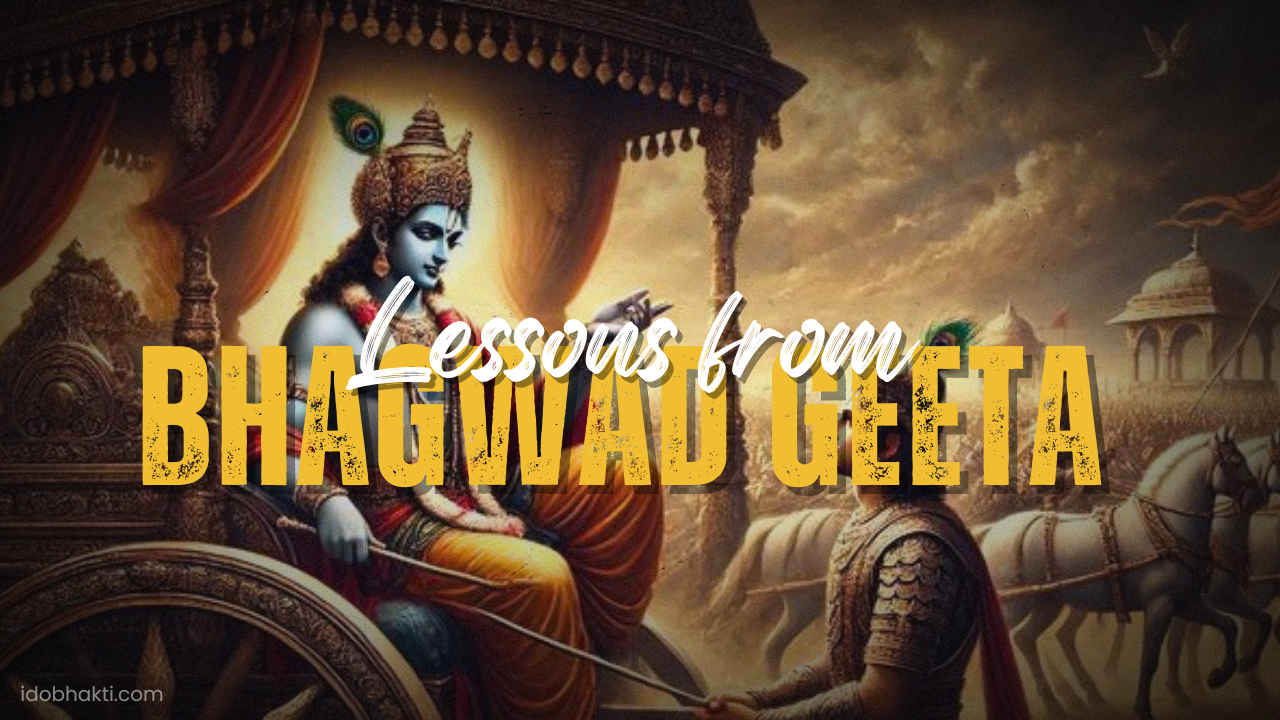
Lessons from the Bhagavad Gita That Will Change Your Life

Top 10 Krishna Bhajans for Every Festival Playlist


